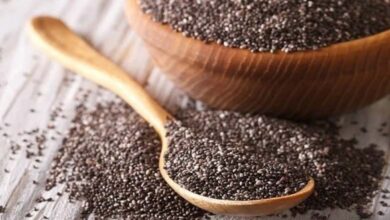Gut Microbes: A Potential Key to Treating Insomnia

Sleep, a fundamental biological process, remains one of the most intriguing mysteries of modern medicine. Despite decades of research into its mechanisms, sleep disorders—particularly insomnia—continue to represent a pressing global health issue. Traditional therapeutic approaches, whether pharmacological or behavioral, often fall short of delivering sustainable relief. Against this backdrop, the gut microbiome—a vast community of microorganisms inhabiting the human digestive tract—has emerged as a promising candidate in the search for innovative treatments. Recent evidence suggests that these invisible allies could play a crucial role in regulating sleep and, more specifically, in alleviating insomnia.
Insomnia: Prevalence and Societal Burden
According to the World Health Organization, nearly 30% of the global population experiences occasional insomnia, while about 10% suffer from chronic insomnia. Beyond the nightly struggle to fall or stay asleep, insomnia disrupts daytime functioning, impairs memory and concentration, and heightens vulnerability to stress.
The societal costs are equally staggering. In the United States alone, sleep deprivation is estimated to drain over $400 billion annually in lost productivity and healthcare expenditures. Across Europe and Asia, comparable figures reveal insomnia to be not merely a private affliction but a significant collective challenge with economic and social repercussions.
-
Playing in the Dirt: Is it Beneficial for Children’s Immune System?
-
Alzheimer’s: Fusing these two diets would be ideal for preventing disease
The Gut Microbiome: A Complex Ecosystem
The human gut harbors nearly 100 trillion microorganisms, including bacteria, viruses, fungi, and archaea. Far from being passive passengers, these microbes actively shape human physiology, influencing metabolism, immune responses, stress management, and now, as evidence suggests, circadian rhythms and sleep regulation.
The concept of the gut-brain axis captures this bidirectional communication system. Signals flow continuously between the gut and the central nervous system through neural, hormonal, and immune pathways. Diet, lifestyle, and stress exposure alter not only microbial composition but also brain function and sleep quality.
Biological Pathways Linking the Microbiome and Sleep
Emerging research highlights several mechanisms:
- Neurotransmitter Production
Gut bacteria contribute to the synthesis of crucial neurotransmitters. Remarkably, about 90% of serotonin is produced in the intestines. Since serotonin is the precursor of melatonin, disruptions in gut health can directly affect sleep-wake cycles. - Inflammatory Modulation
A balanced microbiome generates short-chain fatty acids such as butyrate, which reduce systemic inflammation. Chronic inflammation, conversely, has been strongly linked to fragmented and poor-quality sleep. - Stress Response Regulation
The gut microbiome influences the hypothalamic-pituitary-adrenal (HPA) axis, which governs cortisol secretion. A healthy microbial community helps regulate stress responses, thereby facilitating better sleep.
-
Study – Can Gut Bacteria Cause Rheumatoid Arthritis?
-
Animal or Plant-Based Iron – Which One Does Your Gut Prefer?
Current Scientific Evidence
Several experimental studies strengthen this hypothesis:
- A 2019 Japanese study demonstrated that germ-free mice exhibited disrupted sleep cycles and reduced melatonin production.
- In 2020, a U.S. clinical trial found that probiotics containing Lactobacillus rhamnosus improved sleep quality in individuals with mild to moderate anxiety.
- European research has indicated that high-fiber diets, which promote butyrate-producing bacteria, are correlated with more restorative sleep patterns.
-
Raw or Cooked Vegetables: Which Is Better for Your Gut Health?
-
Sweeteners Have Toxic Effects on Some Good Gut Bacteria
Therapeutic Perspectives
Potential interventions include:
- Targeted Probiotics: Developing microbial strains specifically aimed at modulating circadian rhythms.
- Prebiotics: Nutritional compounds that encourage the growth of beneficial bacteria.
- Psychobiotics: An emerging class of probiotics with direct effects on mental health and sleep.
- Personalized Nutrition: Tailoring dietary plans to an individual’s microbial profile to optimize sleep outcomes.
Such approaches align with the broader vision of precision medicine, where treatments are customized to individual biological signatures.
-
Full-Body Deodorant: Does It Truly Deserve Its TikTok Hype?
-
Protein-Enriched Foods: Are They Safe for Children?
Challenges and Limitations
Despite its promise, the field faces significant challenges:
- Individual variability in microbiome composition complicates the development of universal interventions.
- Most clinical studies are still small-scale and lack long-term follow-up.
- Mechanistic pathways remain only partially understood.
Future research will need to address these gaps through large-scale, interdisciplinary collaborations.
The gut microbiome, once overlooked, is now recognized as a pivotal player in human health. Its influence on sleep regulation represents a paradigm shift in how we understand and potentially treat insomnia. If ongoing research confirms these findings, the future of sleep medicine may depend as much on the microbial ecosystems within our intestines as on the neurons in our brains.












